Season 1: Other Talking Points – K2.0 Podcast
#EP15 - Should I stay or should I go?
In our last episode of the first season of Other Talking Points, we are revisiting the topic of travel.
Not long ago, when we recorded our first episode, we talked about travel in the region and what it tells us about our shared past, our current sense of belonging and our understanding of one another.
One aspect of the conversation was Kosovars’ long isolation, a result of the EU’s visa regime. For years, practically the only places Kosovars could travel to without going through a dehumanizing visa application process were neighboring countries.
Change seems to be underway. On April 18, the European Parliament decided to lift visa requirements for Kosovars starting in January 2024, nearly 15 years after other countries in the region were granted this right.
What will Kosovars do come January? Will everyone leave? Who will stay?
There are rising fears that young people will clear out as soon as they can. In advance, some are pleading for them to stay. In a recent blog call K2.0 asked young Kosovars the questions: What keeps you in Kosovo? Do we owe it to Kosovo to stay? Will travel start feeling more like a normal activity rather than an escape?
In anticipation of the publication of these blogs in June, two guests joined us to discuss some of the responses we got from young Kosovars and also to explore our relationship to travel.
Ilir Gashi works at the intersection of media, activism, art and technology. He was a guest in the first episode of Other Talking Points and he wrote an article last year for K2.0 titled “The Alternative Balkan Postal Service,” which was recently shortlisted for the European Press Prize for Distinguished Reporting.
Aulonë Kadriu is an editor at K2.0 and one of the producers of Other Talking Points. She was the author of “We are in a real ghetto,” K2.0’s investigation on visa processing, and is the lead editor on our recent blog call.
This podcast is part of the Human Rightivism project, which is funded by the Embassy of Sweden in Prishtina, implemented by the Community Development Fund through its Human Rightivism Program. The author’s views expressed in this publication do not necessarily reflect the views of the Embassy of Sweden in Prishtina.

#EP14 - Oral history and the reimagining of historical memory
Historical memory is shaped by what is documented. What we remember or celebrate, what we overlook or forget, is a result of the narratives we choose, or which are chosen for us.
The official historical record is always subject to attempts to reveal or conceal different facts or narratives. They often also serve as a site of power-plays, where the strong choose who to glorify (often themselves and their ideological forebearers).
Women, ethnic minorities, and other marginalized groups are often excluded or misrepresented. This peripheral or superficial inclusion of the marginalized creates a collective memory that is fragmented and incomplete. Moreover, such erasure is never an innocent omission, it is a deliberate act that aims to perpetuate exclusion into the future.
But there are a number of grassroots initiatives working to challenge official histories by documenting and disseminating a wider range of historical experiences and narratives. Through oral history, film, photography and exhibitions they are documenting and sharing the stories and events that did not make it into the official narrative about the past.
In this episode, we talk in more detail about two such initiatives. The first is the exhibition “A Site of Political Struggle: Trepça Mine 1989,” a collaboration between Oral History Kosovo and forumZFD. The second is “They Live: Student lives through context-based art practices,” a collaboration between several public institutions, universities and NGOs from Montenegro, Serbia and Croatia that documented the experience of student dorm life across the generations.
We are joined by the two of the researchers behind these projects.
Erëmirë Krasniqi is a researcher and curator and the executive director of Oral History Kosovo. She recently curated the exhibition on the Trepça miners strike of 1989.
Milena Prevelić is a cultural worker and member of the Institute of Contemporary Art in Montenegro. Recently, she was the Montenegro coordinator for “They Live.”
This podcast is part of the Human Rightivism project, which is funded by the Embassy of Sweden in Prishtina, implemented by the Community Development Fund through its Human Rightivism Program. The author’s views expressed in this publication do not necessarily reflect the views of the Embassy of Sweden in Prishtina.

#EP13 - The Extra Obstacles Confronting Women Journalists
In this episode, we talk about the experiences of women journalists in Kosovo, Serbia and the broader region.
Though women’s perspectives and voices are increasingly incorporated into media content, there’s been relatively limited discussion about how media outlets are failing women journalists in the workplace. Women have long been aware of the pervasiveness of gender discrimination, but two recent reports have documented the full extent of workplace sexism in newsrooms across Kosovo and Serbia.
The findings of these reports align with global surveys that reflect the unfortunate truth that gender-based discrimination is prevalent in the media workplace.
Relying on surveys and conversations with over 500 women journalists across the two countries, it is one of the first comprehensive looks into the topic. Some of the forms of discrimination highlighted in the research are sexual harassment, ageism and the lack of support for journalists who are mothers. These obstacles result in hostile work environments that can compromise the well-being of women journalists and hinder their professional growth.
We were joined by Maša Mileusnić and Dafina Halili to discuss the reports’ findings and other challenges women face as journalists.
Maša Mileusnić is a journalist and a member of the Serbia-based network Women Journalists Against Violence Towards Women.
Dafina Halili is a journalist and contributing editor at Kosovo 2.0. She conducted the Kosovo portion of the recent report on the position of women in journalism.
This podcast is part of the Human Rightivism project, which is funded by the Embassy of Sweden in Prishtina, implemented by the Community Development Fund through its Human Rightivism Program. The author’s views expressed in this publication do not necessarily reflect the views of the Embassy of Sweden in Prishtina.
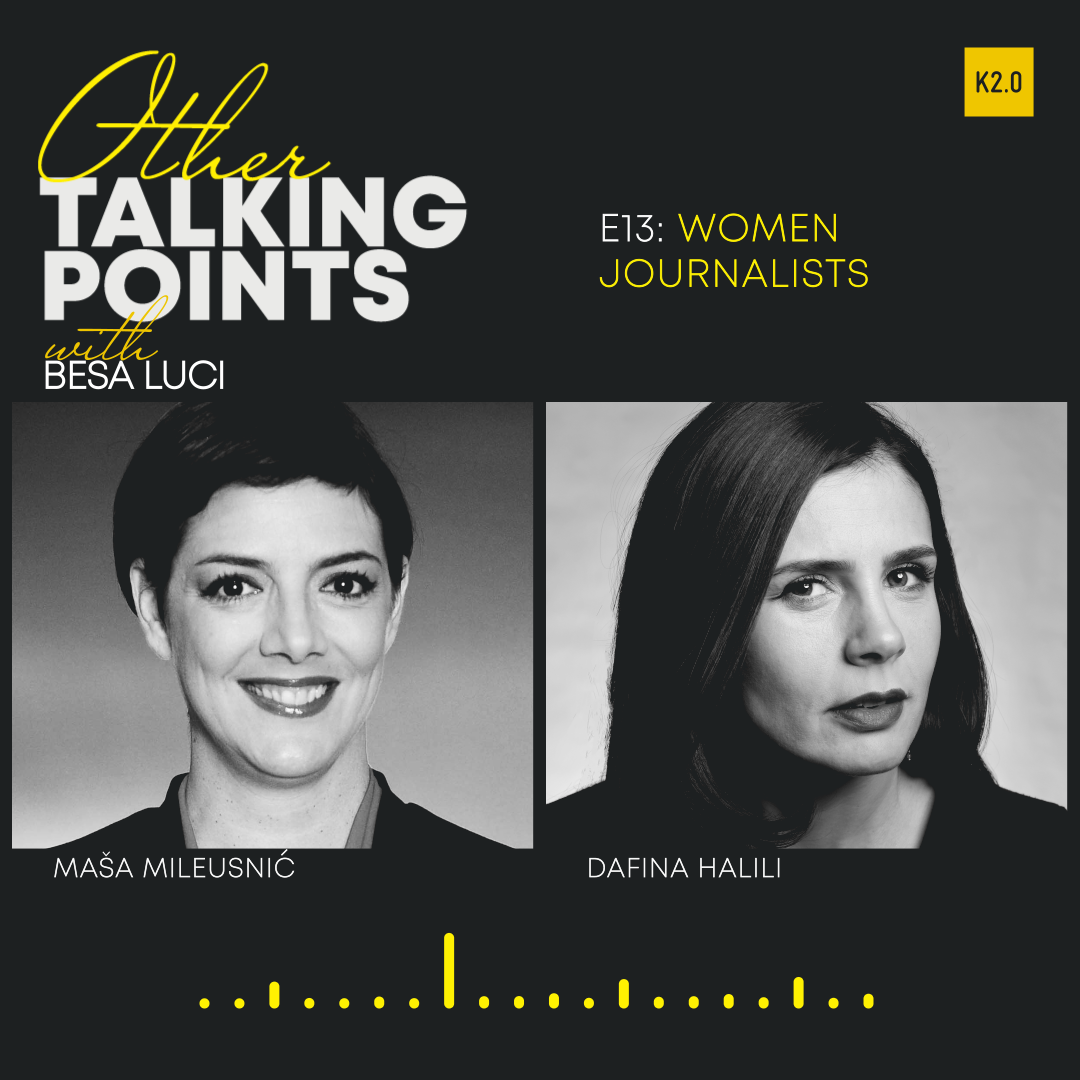
#EP12 - Is there anything new with the Association?
In this episode, we talk about the Association of Serb-Majority Municipalities in Kosovo.
Arising in 2013 as part of an agreement between Kosovo and Serbia within the EU-mediated dialogue, the Association was promoted as a way to convince Kosovo Serbs to fully enter the Kosovar system, ensure their cultural autonomy and end the Serbian state’s parallel structures within Kosovo. Still unimplemented after a decade, it’s long been causing controversy.
Following the initial 2013 agreement and a follow-up in 2015, Kosovo erupted in political turmoil. For weeks, in both years, the Assembly was brought to a halt by the then-opposition party Vetëvendosje, who argued that the Association was a way for Serbia to undermine Kosovo’s sovereignty. The 2015 protests initiated a review by the Constitutional Court, which paradoxically said that aspects of the guiding principles of the Association were not in accordance with the Constitution, but that it was nevertheless a legal obligation for Kosovo.
This past March, a much-awaited meeting took place in Ohrid, where Kosovo and Serbia agreed to, but did not sign, the “European Plan” for normalizing relations. Observers paid the most attention to a particular article of the 11-point plan, which would require Kosovo “to ensure an appropriate level of self-management for the Serbian community in Kosovo,” and to do so in accordance with previously reached agreements.
Critics of the Association see it as an additional level of governance, “a state within a state,” which will lead to the “bosnification” of Kosovo, referring to the Republika Srpska entity in Bosnia and Herzegovina, also an imposed creation of the international community. But details are still scarce, and no one seems to actually know what the Association will look like.
Two guests discuss the competing narratives around the Association as well as what this process tells us about the region’s relationship with the EU and international community at large.
Augustin Palokaj is the Brussels correspondent for KOHA group and has been following the dialogue for over a decade.
Adi Ćerimagić is a senior analyst at the European Stability Initiative, a European think tank developing policy ideas on South East Europe, asylum policy, human rights and democracy.
This podcast is part of the Human Rightivism project, which is funded by the Embassy of Sweden in Prishtina, implemented by the Community Development Fund through its Human Rightivism Program. The author’s views expressed in this publication do not necessarily reflect the views of the Embassy of Sweden in Prishtina.
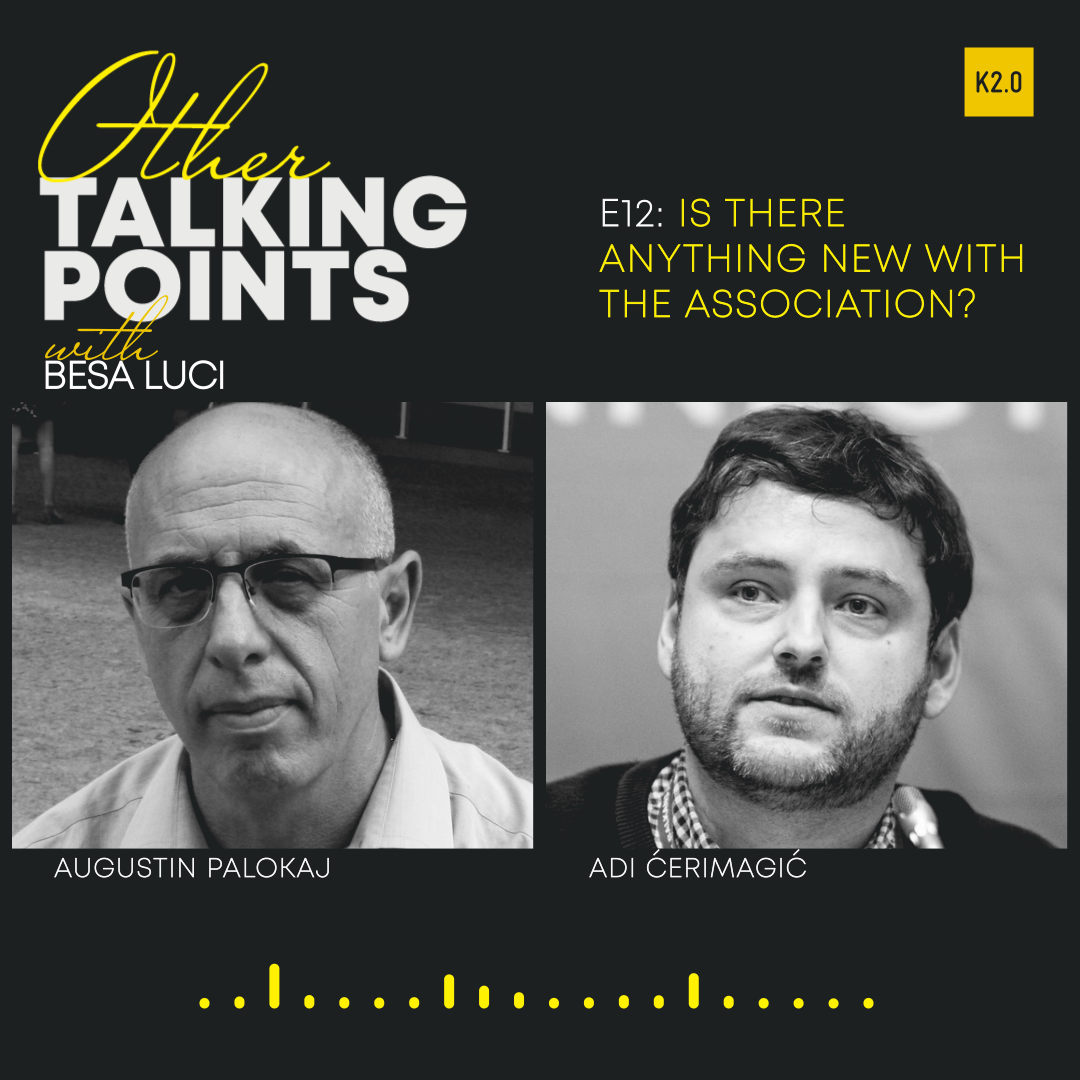
#EP11 - Pop culture — commodity or confrontation?
Songs, movies, reality shows, video games, news — these products of popular culture shape our society. From the way we interact with others, how we view our own identities, how we dress — it’s all influenced by popular culture and mass media.
In this episode, we will talk about popular culture and specific cases from the region.
Over the last few months, much of Kosovo became captivated with “Big Brother VIP Kosova,” the first local edition of the international reality show series. The show, which featured contestants from across the dominant spheres of pop culture in Kosovo, reached unprecedented levels of popularity. It was due to this widespread popularity that some were particularly concerned about the misogyny and homophobia that was a prominent aspect of the show and the characters’ conversation. How was this questionable celebrity culture shaping its viewers?
Other forms of popular culture have also come under scrutiny. For example, mainstream music in our region often perpetuates sexist, nationalist or homophobic ideas. The daily news cycle, particularly entertainment news, often centers on personalities and spectacle. Internet culture is driven by constant comparisons to unhealthy and unrealistic lifestyles, which exacerbates teenagers’ body image and mental health issues.
These pop culture elements in our lives play a role in establishing common norms and social expectations — but many voices or groups are neglected or even oppressed in the dominant narratives.
That is why pop culture’s significance is not just tied up in concerns about quality or that it’s material produced for the lowest common denominator. Pop culture is shaped by and shapes the ideological, political and economic values of the world around us.
Academics have long discussed this aspect of pop culture. Is it merely the vulgar transformation of culture into a commodity? Or does pop culture have the potential to be a site of resistance — one where values and norms can be challenged and reimagined?
Two guests joined us in this episode to discuss such questions.
Lindita Tahiri teaches at the Department of English Language and at the Department of Journalism at the University of Prishtina. Her courses cover Literary Criticism, Mass Communication, Language and Culture, Language and Ideology. She has publications, including three books, in the field of literary criticism and critical discourse analysis, as well as two university textbooks in mass communication and media literacy.
Jovana Gligorijević is a journalist at the Belgrade-based magazine Vreme and co-founder of the group “Female journalists against gender based violence.” She co-authored guidelines for ethical reporting on gender-based violence and is the author of media literacy manuals for high school teachers.
This podcast is part of the Human Rightivism project, which is funded by the Embassy of Sweden in Prishtina, implemented by the Community Development Fund through its Human Rightivism Program. The author’s views expressed in this publication do not necessarily reflect the views of the Embassy of Sweden in Prishtina.
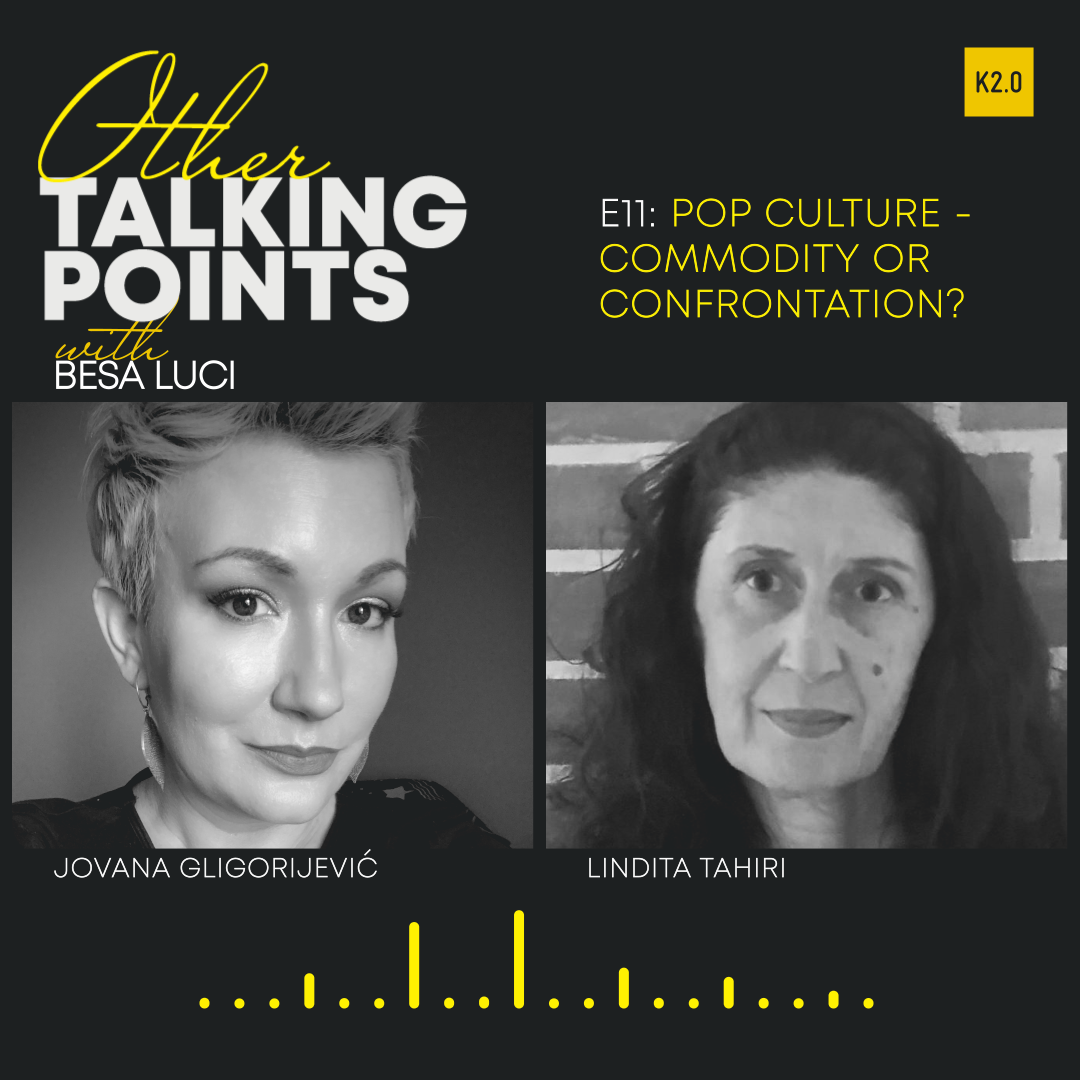
#EP10 - Women's Bodily Autonomy
In this episode we talk about how women across the globe are facing setbacks in their struggle for bodily autonomy.
One of the ways this is happening is in the banning or restricting of abortion access. In Poland, abortion has been banned since 2020. Though there are supposed to be exceptions in the case of rape, incest or when the health of the mother is endangered, a Polish pregnant woman recently died because doctors refused to perform an abortion that her family states would have saved her life.
Abortion rights are being restricted in the U.S. as well. Last year the Supreme Court overruled Roe v Wade, the ruling protecting the right abortion. As a result, 18 states have now banned or restricted abortion, with many other states looking to follow suit.
And there are cases when abortion is legal, but practically inaccessible. In Croatia, for example, abortion is expensive and doctors often refuse to perform it. In other countries, like Kosovo and Serbia, abortion is legal and largely accessible, but there is still a deep taboo and shame about discussing the common procedure openly and without shame.
It’s not just abortion where women are facing setbacks. In Kosovo, a draft law on Reproductive Health and Assisted Fertility came up for a vote in the Assembly recently. During the debate on the Assembly floor, one deputy said that assisted fertility is a threat to the family as it would allow unmarried women to have children. This comment was unwelcome to deputy Saranda Bogujevci, who declared that women must always be in control of their own choices about pregnancy. In response, Bogujevci faced a wave of sexist statements, both in the Assembly and online.
Beyond these specific cases, women’s bodily integrity continues to be threatened, as shown by the prevalence of sexual harassment, rape, abuse, and femicide across the world. Women are constantly judged on the basis of their looks, their sexual activity, their clothing and their choices. Women’s autonomy, it seems, is still up for debate, and the ones debating it are men.
Marta Lempart and Shqipe Gjocaj joined us in this episode to discuss the topics of women’s rights and bodily autonomy, as well as the ways some governments are clamping down on women’s liberties.
Marta Lempart is a Polish women’s rights activist and founder of the Polish Women’s Strike.
Shqipe Gjocaj is a feminist activist, gender specialist, and independent journalist from Kosovo.
This podcast is part of the Human Rightivism project, which is funded by the Embassy of Sweden in Prishtina, implemented by the Community Development Fund through its Human Rightivism Program. The author’s views expressed in this publication do not necessarily reflect the views of the Embassy of Sweden in Prishtina.
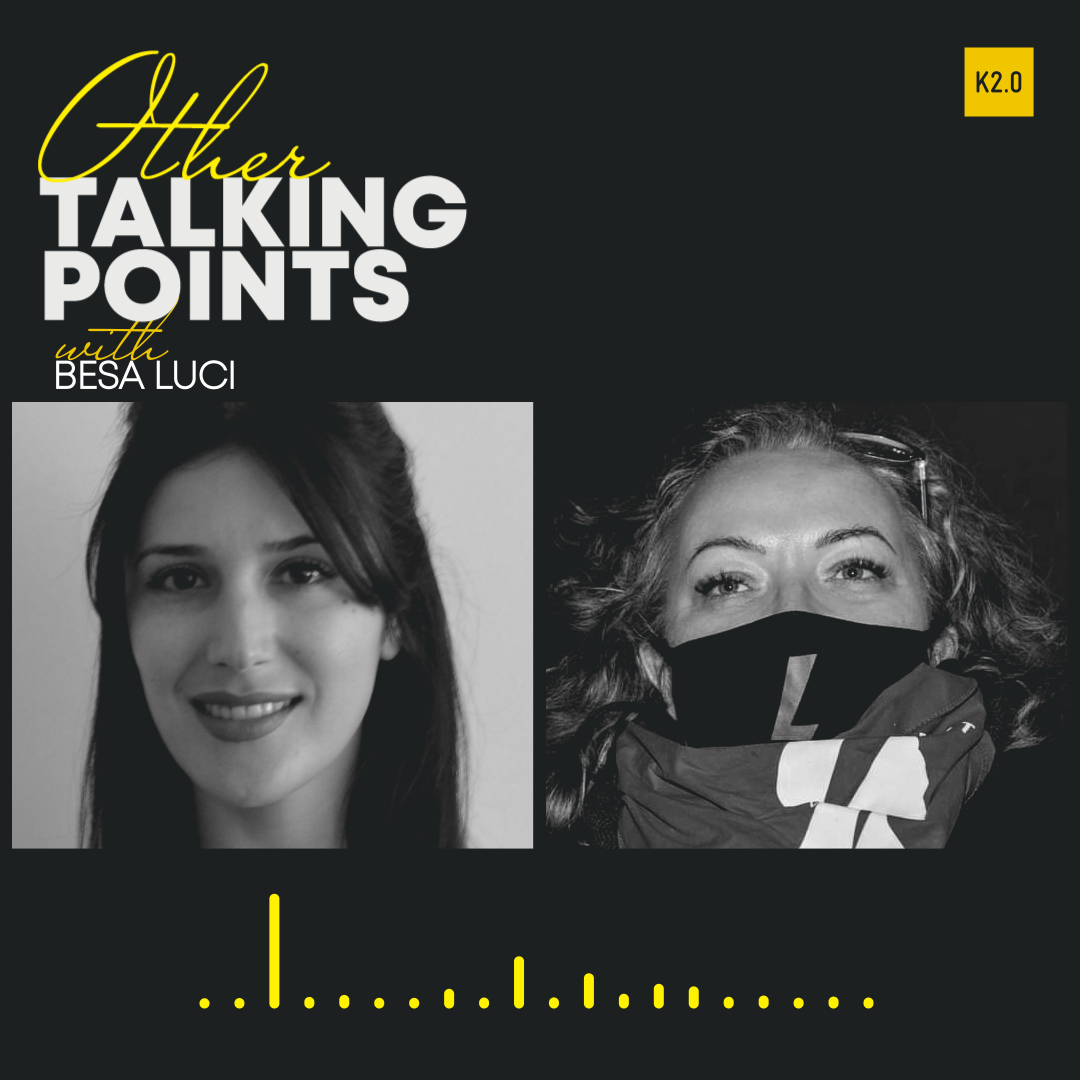
#EP9 - The Balkan Route, migration and people on the move
Migration is a topic people in the Balkans are far too familiar with. Whether we’re talking about the current economic migration to the West that is draining the region, or the millions who fled their homes in the 1990s due to the break-up of Yugoslavia and the ensuing wars, there’s hardly a single person who doesn’t have some first or second-hand experience with migration.
The topic of migration became salient again to the Balkans in 2015, when hundreds of thousands of refugees from Syria, Afghanistan and a host of Middle Eastern and North African countries, fleeing war and poverty, made their way across what became known as “the Balkan route.”
Though the difficult images of bedraggled people walking for hundreds of miles inspired tremendous displays of solidarity and support, the longer term policy and political response of much of Europe was a re-commitment to blocking, with barbed wire and police batons, the refugee paths up through Europe’s southern border.
Migration remains as relevant as ever for the Balkans, Europe and the globe. Kosovars remain in a seemingly never-ending visa regime by the EU and Albanians are the target of government and media campaigns of xenophobia in the U.K. Hundreds of thousands of Ukrainians fleeing the Russian invasion in 2022 initially received great affection and care across the EU — though this highlighted a discrepancy between Ukrainians’ warm welcome and the EU’s treatment towards other equally deserving refugees.
Gorana Mlinarević and Lura Pollozhani joined us on this episode to discuss what is going on in the Balkans and in the EU in terms of migration.
Gorana Mlinarević, wrote an article for K2.0 back in 2021 titled “Why we must show feminist solidarity with people on the long road west?” that explored the idea of “Fortress Europe,” that is, how Europe has walled itself off and often refused to offer shelter to those who need it. She is an independent researcher who explores the intersections between identity politics and the economic and social realities of post-war societies.
Lura Pollozhani is a researcher at the Centre for Southeast European Studies at the University of Graz. She focuses on issues related to women, radicalization and social movements. She most recently wrote for K2.0 about the EU’s continued slowness at welcoming North Macedonia and its citizens into Europe’s institutions.
This episode was produced with additional research by Luca Tesei Li Bassi.
This episode was produced with the financial support of the National Endowment for Democracy.

#EP8 - Same-sex Unions
In this episode we talk about the legal recognition of LGBTQ+ rights, with a focus on same-sex unions.
Securing fundamental human rights across the Balkans is an ongoing challenge, and some groups are more discriminated against than others. In terms of the human rights of LGBTQ+ people, governments across the region often dismiss the fact that queer people are deserving of all the rights and respect as any other citizen.
Recent legislative discussions in Kosovo about a new Civil Code demonstrated this tendency. Many Assembly members’ refused to move forward on a set of policies and laws that would improve citizens’ lives simply because they were in opposition to a single article in the Code which would have opened a path to same-sex civil unions in Kosovo.
During the parliamentary discussions, representatives, many of whom were from the progressive left party, demonstrated that they don’t see LGBTQ+ people as full citizens. Homophobic statements in the Assembly echoed out across the country and prompted hate speech on social media, marking a setback for the fight for human rights.
Similar institutionalized homophobia is common in neighboring countries. But in 2020, Montenegro took a first step towards legalizing same-sex civil partnerships, though with a very narrow majority. While this was touted as a historical step by government representatives, the right to adopt or foster children remains inaccessible, meaning that there is still a long path to full equality.
Two guests joined us in this episode to discuss what the progress, or lack thereof, for same-sex unions tells us about LGBTQ+ recognition as well as societies’ understandings of the institution of the family.
Jelena Čolaković is program director of Juventas, a Montenegro-based NGO working in social justice.
Valmira Rashiti is Gender Mainstreaming Officer at Kosovo Women’s Network, an NGO supporting, protecting and promoting the rights of women in Kosovo.
This podcast is part of the Human Rightivism project, which is funded by the Embassy of Sweden in Prishtina, implemented by the Community Development Fund through its Human Rightivism Program. The author’s views expressed in this publication do not necessarily reflect the views of the Embassy of Sweden in Prishtina.
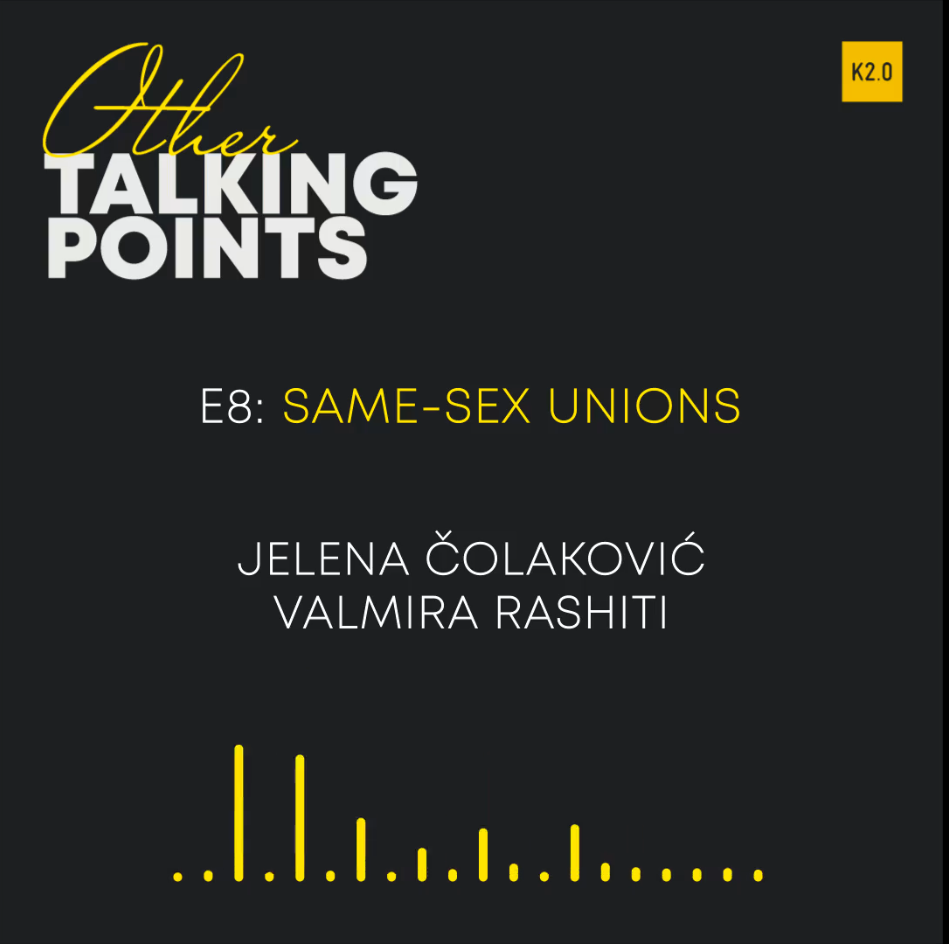
#EP7 - Unpaid Labor
In this episode we’ll be talking about unpaid labor — about the cleaning, cooking, childcare, eldercare and more that is performed inside the home and in the family and which is not remunerated. Though unpaid, this labor is essential for the functioning of society and for other people’s ability to engage in paid labor.
What makes the issue of unpaid labor so important is that it is mostly performed by women. This means that women are either expected to stay at home and out of the labor force or, if they have formal employment, to work a “second shift” after their regular working hours to take care of the household and the others living there.
This not only takes a physical, emotional and professional toll on women, it also prevents many from accessing the labor market in the first place.
Two guests join us this episode to discuss unpaid labor in Kosovo, the Balkans and beyond.
Marigona Drevinja is the co-founder and Program Director of the Prishtina-based Institute for Social Policy “Musine Kokalari.” K2.0 recently published an article written by Marigona with the title “Women bear the burden of unpaid care work in Kosovo,” in which she drew from her work on Musine Kokalari’s report “Who Cares? Unpaid Care Work in Kosovo.”
Nađa Bobičić is a feminist scholar and activist based in Belgrade. She helped us navigate the gender dimension of work and labor discrimination at SWEAT, our labor-focused Carnival in 2022. She is also the chief editor of a report published by the Belgrade Women’s Studies Center titled “Get your time back: Research on the distribution of housework among millennial women and generation z.”
This episode was produced with additional research by Luca Tesei Li Bassi.
This podcast is part of the Human Rightivism project, which is funded by the Embassy of Sweden in Prishtina, implemented by the Community Development Fund through its Human Rightivism Program. The author’s views expressed in this publication do not necessarily reflect the views of the Embassy of Sweden in Prishtina.

#EP6 - Climate Change
In this episode, we’ll be talking about climate change. How vulnerable is our region to the warming of the planet? Are we taking enough measures to address and adapt to climate change?
Climate change has been making headlines for years and we have all felt the effects one way or another. As the planet continues to warm, we now have warmer Januaries, snowless winters and drier summers.
In summer 2022, heatwaves and droughts left some of Europe’s main rivers dry or at their lowest levels in the past 500 years. In other parts of the continent and the world at large, floods have devastated populations. Temperatures have been hitting record highs every year and the first few days of 2023 marked some of the hottest days in January on record for some countries in Europe.
Our region is prone to a range of extreme weather events, including heatwaves, droughts, floods, and storms, which are expected to become more frequent and intense as the planet continues to warm. These events can have a significant impact on the region’s economy, infrastructure and natural systems.
Though climate change is the most pressing global challenge for our generation — in our region, by and large, climate change doesn’t seem to be a priority for national governments, for the public, or for local media.
Two guests join us this episode to explore how the climate is changing and how regional countries are responding to it.
Vladimir Djurdjević is a professor at the Faculty of Physics, University of Belgrade, and an expert in climate modelling and climate data analysis.
Granit Gashi is the director of the Into the Park Festival, through which he tries to connect his generation to environmental protection through music. Granit is a contact point for Kosovo and Program Assistant at the Heinrich Böll Foundation.
This episode was produced with the financial support of the National Endowment for Democracy.
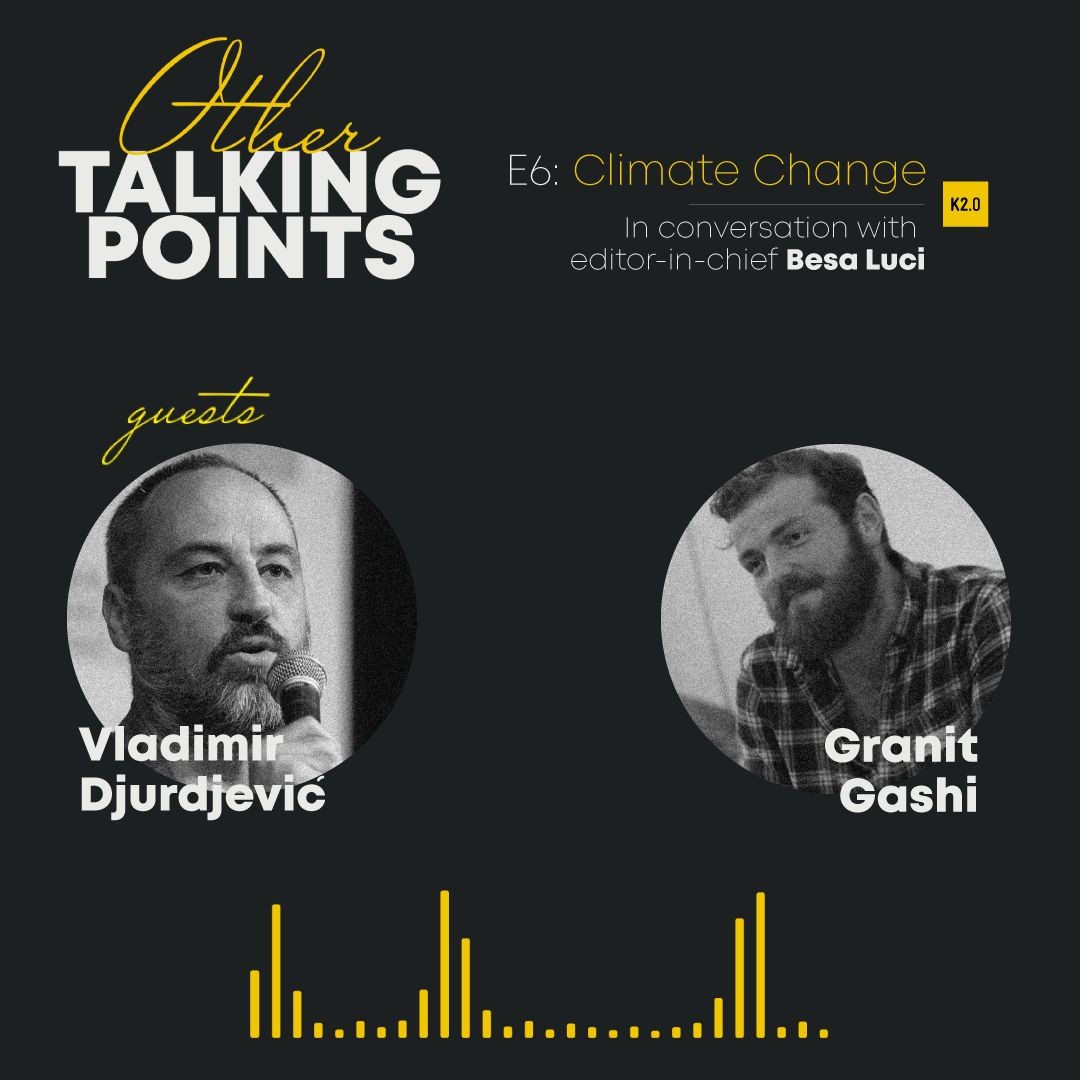
#EP5 - Gentrification
In this episode, we look at gentrification in urban spaces in the Balkans.
Gentrification is when poor or underserved areas undergo transformations that expand economic activity through the modification, renovation or demolition of existing buildings and infrastructure in a manner that increases property values. Such changes in the urban landscape often end up displacing existing residents, particularly those living in conditions of socioeconomic fragility. It contributes to what is called the “peripheralization of poverty,” that is, the expulsion of poor communities to the outskirts of our cities.
Gentrification is taking place worldwide and the Balkans are no exception. In a region eager to move on from a troublesome, communist past, neoliberal approaches to urban planning and economic development have found an ideal breeding ground in Balkan cities, particularly in capital cities. In Prishtina, Tirana or Belgrade, policies that have been shown to destroy urban traditions and cultural heritage in other parts of the world are being adopted here at full speed.
Two architects join us this episode to talk about gentrification and alternative pathways to urban regeneration.
Dorina Pllumbi is an architect and a PhD researcher at TU Delft University of Technology in the Netherlands. Last summer she wrote a longform article for K2.0 called “Is Tirana’s rapid transformation progress or erasure?”, one of our most read pieces of 2022, which explored the issue of gentrification in Tirana.
Iva Čukić holds a PhD in urban planning from the Faculty of Architecture, University of Belgrade. She is a co-founder and member of the collective “Ministry of Space,” which monitors and responds to urban transformations in Belgrade and other cities across Serbia.
This episode was produced with additional research by Luca Tesei Li Bassi.
This episode was produced with the financial support of the National Endowment for Democracy.
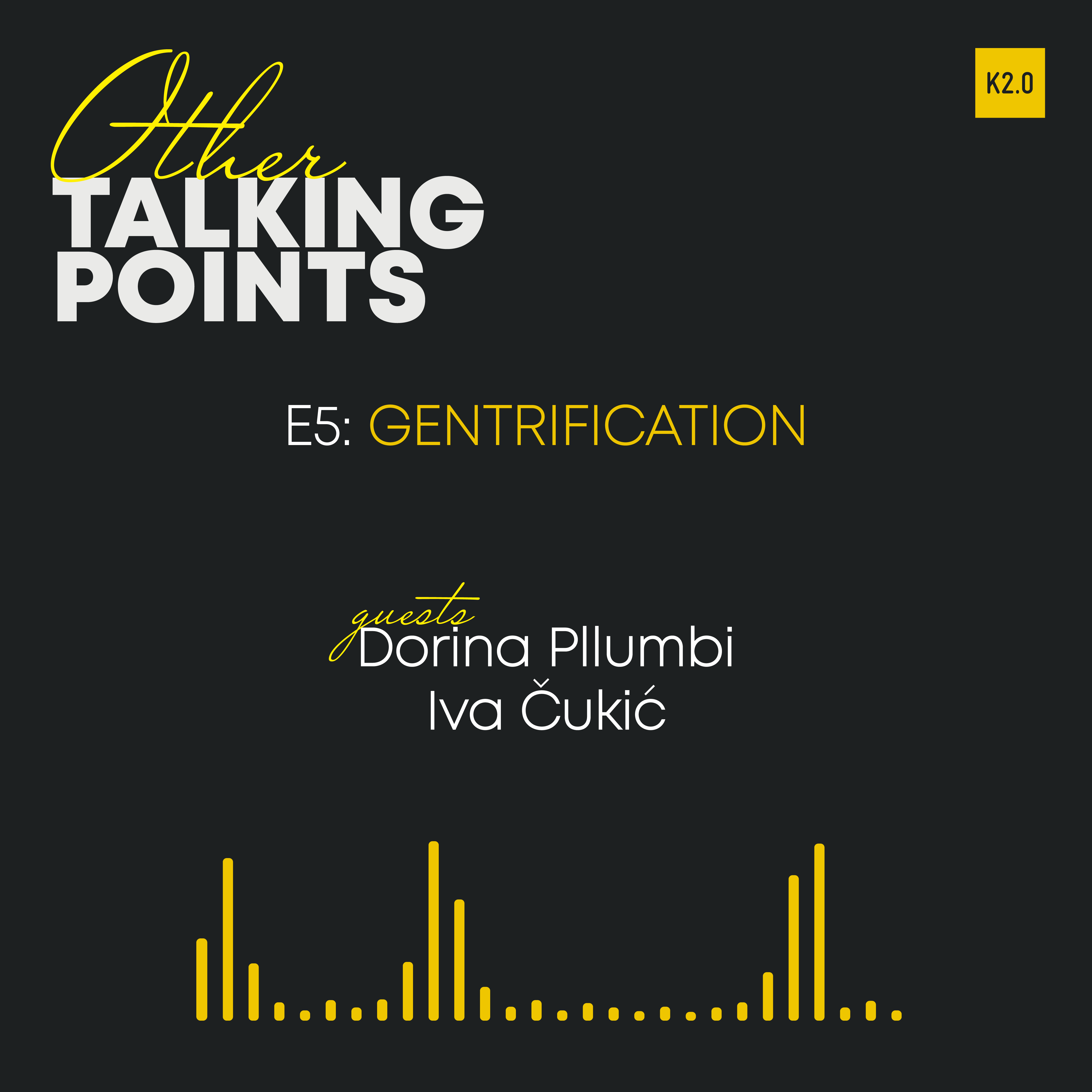
#EP4 - A Different Approach to Kosovo and Serbia
In this episode, we look at the ways we talk about the relationship between Kosovo and Serbia.
Since 2011, the dominant framework for talking about the relationship between the two countries has been in the context of the EU-mediated dialogue.
From time to time, the media might report on cultural cooperation, instances of economic integration or citizen-based initiatives. But such reports are few and far between, and often disappear amid the constant flow of sensationalist or conflict-driven narratives.
Are there other stories and narratives that go beyond ethnic enmity and EU diplomatic bureaucracy?
Though there appears to be little academic exchange or collaboration between the two countries, the recently published book “Kosovo-Serbia: A Different Approach” is trying to bring scholars from the two countries together to challenge preconceived notions, confront historical revisionism and propose some common narratives.
The book was published by the Musine Kokolari Institute for Social Policy in Prishtina and the Institute for Philosophy and Social Theory in Belgrade. It proposes progressive perspectives on pressing social, economic and ecological questions with the aim of showing similarities between Serbs and Albanians through shared contemporary struggles and concerns.
Two of the publication’s main initiators discuss the book and the new frameworks for talking about Kosovo and Serbia relations.
Visar Ymeri is an activist, analyst and politician who served as the deputy leader of the Social Democratic Party of Kosovo. He served as the leader of Vetëvendosje between 2015 and 2018. Now he runs the Musine Kokolari Institute for Social Policy, a think tank promoting social democratic values in Kosovo.
Aleksandar Pavlović is a senior researcher at the Institute for Philosophy and Social Theory, University of Belgrade. His main research interests are cultural history of the Balkans, Serbian and Balkan oral and written tradition, Serbian-Albanian relations and traditional Balkan society.
This episode was produced with the financial support of the National Endowment for Democracy.
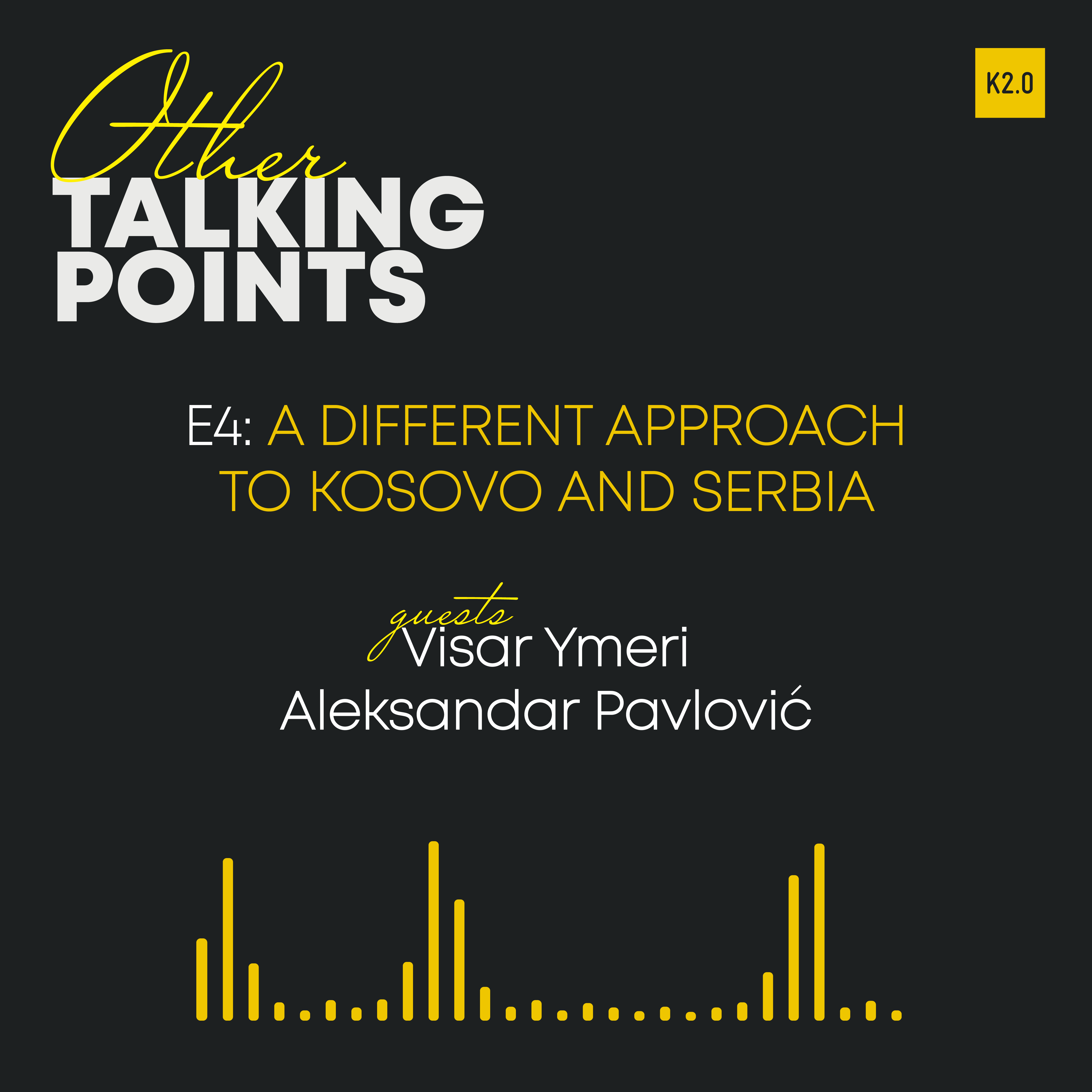
#EP3 - Social Protection
In this episode, we look at social protection. That is, whether and to what extent countries in the region have social schemes and programs that can meaningfully help the most vulnerable and have a meaningful effect on economic mobility.
Access to adequate social protection becomes particularly critical in times of crisis and economic shocks. During the pandemic, we experienced first-hand how essential social protection is. Many people lost their jobs, industry came to a halt, and medical institutions were in a shock. This created a greater awareness of the essential nature of social safety nets.
These shocks to the global economic system continued in 2022 when Russia’s war in Ukraine led to global inflation, which degraded the value of people’s savings and paychecks, and which put low-income people in an especially vulnerable position.
Most governments in the region intervened and rolled out relief packages that aimed to help more vulnerable groups in society face the added burdens and pressures. However, there’s much to explore about the extent to which safety nets were already existing and whether response measures contributed to relief for citizens.
I spoke about different aspects of social protection schemes with two scholars of social policy and welfare systems who recently co-authored a paper that examines social protection spending and redistribution in the region between 2005 and 2016.
Maja Gerovska-Mitev is a professor of social policy in North Macedonia. Her research focuses on examining the changing nature of welfare systems and their impact on poverty and social exclusion.
Artan Mustafa is a professor and social policy researcher in Kosovo, whose research focuses on the politics of the welfare state, social policy design, change and outcomes, and the social foundations of political parties.
This episode was produced with the financial support of the National Endowment for Democracy.
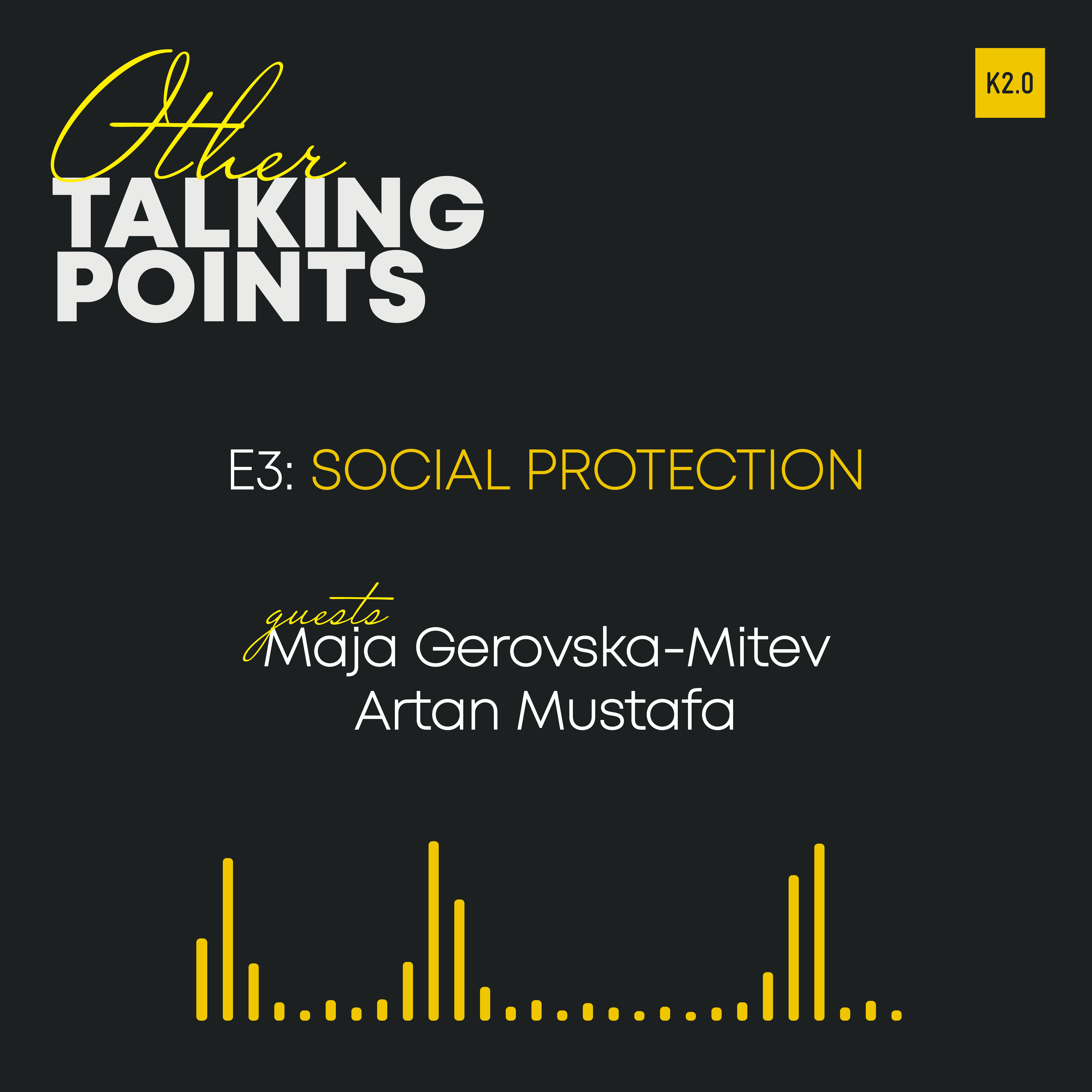
#EP2 - Trans Lives
In this episode, we explore the lives and political struggles of trans people in the region, a particularly important topic considering that trans identities are often marginalized, misunderstood or rejected. This is not necessarily an experience limited to this region; attempts to keep trans lives in the margins is something occurring globally.
Nevertheless, there is a lot of knowledge and documentation of the multilayered histories of trans existence and activist engagement in the region. This is precisely what is brought to the surface in the recently published book “Transgender in the Post-Yugoslav Space: Lives, Activisms, Culture,” edited by Bojan Bilić, Iwo Nord and Aleksa Milanović.
The book gathers 12 contributors from different professional backgrounds — such as academia, activism and art — who offer important perspectives on trans lives and activism in the region.
To discuss the book and particularly the political context in which it was published, I will be talking to one of its editors, Aleksa Milanović, as well as with one of the book’s contributors, Lura Limani.
Aleksa Milanović is an Assistant Professor at the Faculty of Media and Communications in Belgrade. He holds a PhD in Transdisciplinary Studies of Contemporary Arts and Media. He is also the author of “Representation of Transgender Identities in Visual Arts” and “Media Construction of Other Body.”
Lura Limani is a researcher, editor and activist. She worked as the editor-in-chief of Prishtina Insight and holds an MA in cultural studies.
This podcast is part of the Human Rightivism project, which is funded by the Embassy of Sweden in Prishtina, implemented by the Community Development Fund through its Human Rightivism Program. The author’s views expressed in this publication do not necessarily reflect the views of the Swedish International Development Cooperation Agency (SIDA).
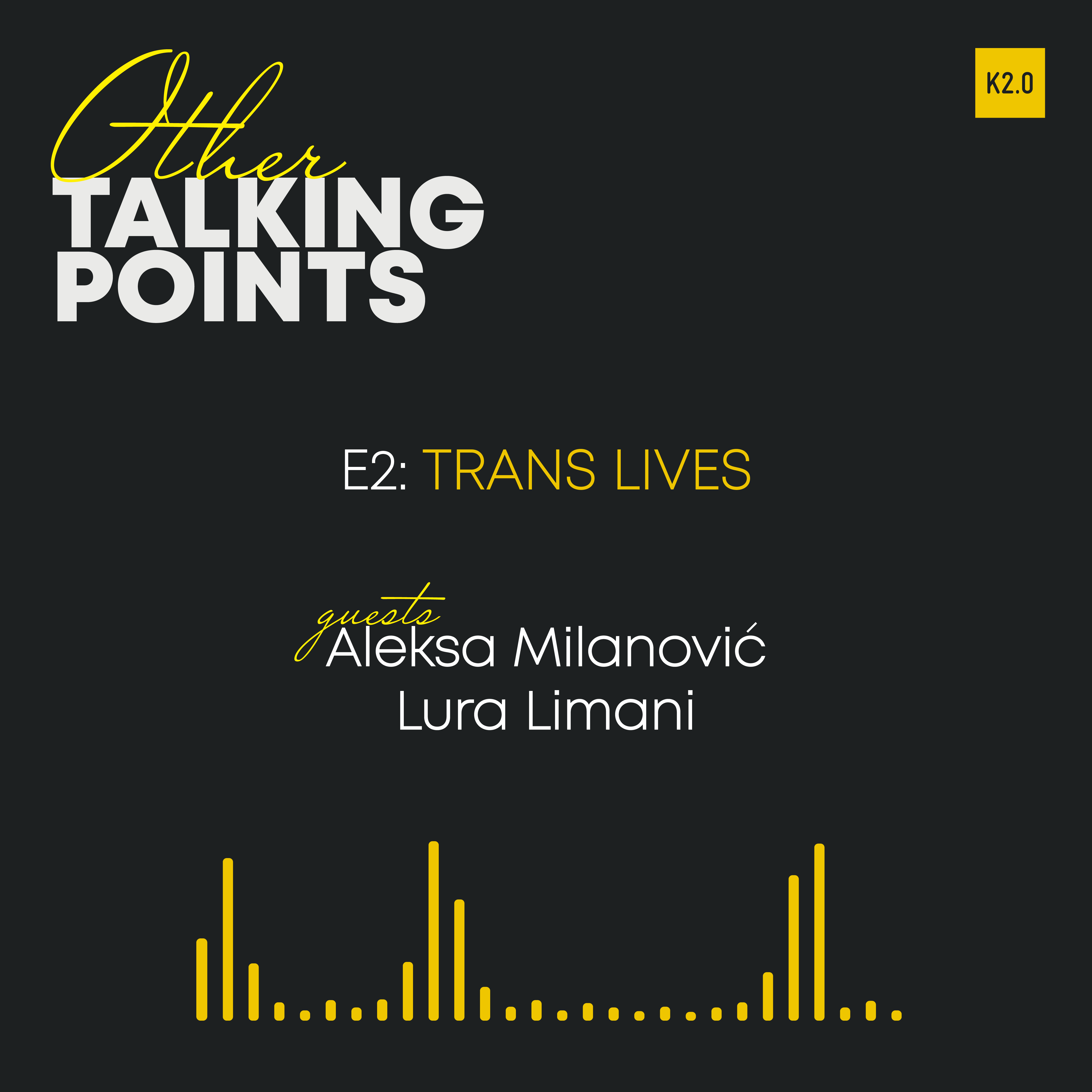
#EP1 - Travel in the region
In this first episode, we explore the topic of travel in the region. Why and how do we travel? What does it tell us about our shared past, our current sense of belonging, and our understanding of one another?
Our guests are Ilir Gashi from Belgrade, who works at the intersection of media, activism, art and technology, and Driton Selmani from Prishtina, a visual artist working in video, installation and photography.
Both are travel enthusiasts and have both created particularly interesting works that explore issues related to travel and borders. On the podcast, they discuss what drives people to travel and connect across borders in the face of the tense political climate and barriers in the region.
With mainstream politics dominated by narratives of division, individual travel not only serves as a quiet protest to such narratives, but reveals the countless everyday cross-border and multilingual ties that continue to connect us.
This episode was produced with the financial support of the National Endowment for Democracy.
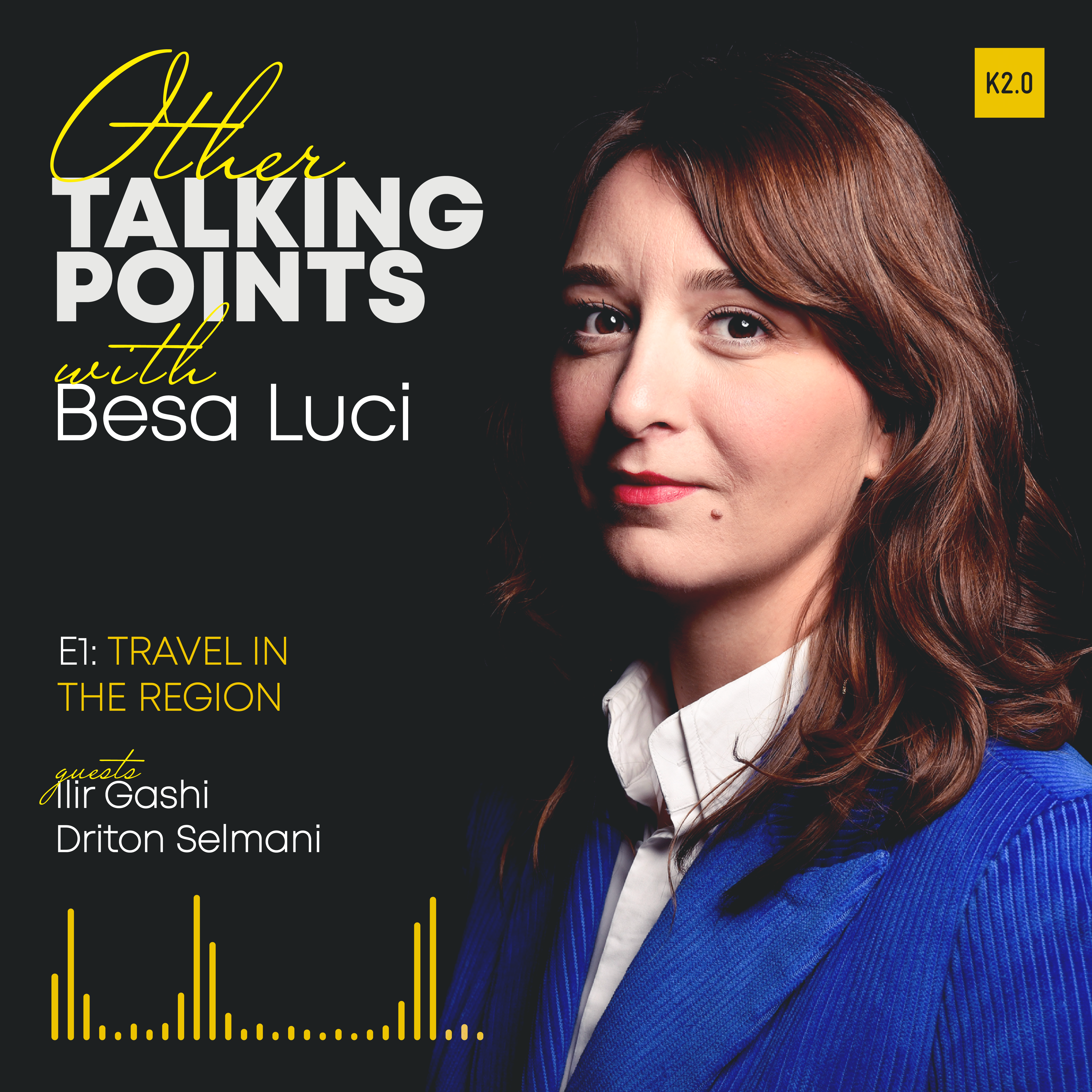
Other Talking Points is produced by Besa Luci, Aulonë Kadriu and Gentiana Paçarizi.
Music and sound mix by PUG Musik.
You can listen to Other Talking Points through our website or by subscribing to K2.0 on Spotify.
By Ferdi Limani, Dafina Halili - 02.05.2025
By Rexhina Ndoci, Petros Karatsareas - 22.05.2025
- This story was originally written in English.

